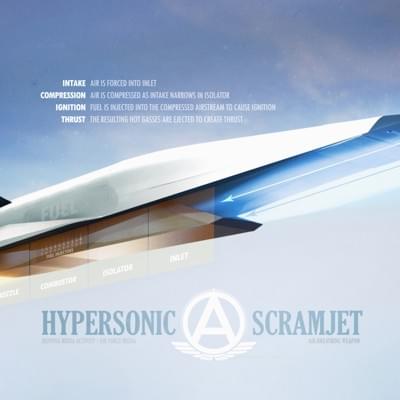A potential new way to protect sensitive electronics from the extreme heat generated by flying at high speed could give the United States an edge in the race to deploy hypersonic missiles and new spacecraft.
A July research paper in the American Chemical Society’s journal ACS Nano describes one potential solution that uses focused plasma, the photons and highly charged particles that make up the so-called fourth state of matter. If the method bears out in further research, it could usher in hypersonic weapons with much more advanced electronic guidance and could even enable on-the-ground weapons to evade heat sensors.
The breakthrough grew out of efforts to use a laser to measure the temperature of electronics in plasma-facing environments, work the Air Force is supporting through a grant at the University of Virginia, said professor Patrick Hopkins, one of the researchers on the paper.
